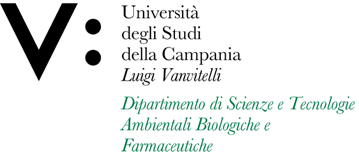Ersilia NIGRO
Insegnamento di PRINCIPI DI NUTRIZIONE NELLO SPORT E NELL'ESERCIZIO FISICO
Corso di laurea magistrale in SCIENZE DEGLI ALIMENTI E DELLA NUTRIZIONE UMANA
SSD: M-EDF/01
CFU: 4,00
ORE PER UNITÀ DIDATTICA: 32,00
Periodo di Erogazione: Secondo Semestre
Italiano
| Lingua di insegnamento | ITALIANO |
| Contenuti | Il corso si occuperà della nutrizione ed alimentazione volta al mantenimento di un buono stato di salute ed applicata all’attività fisica ed allo sport. |
| Testi di riferimento | - Attività fisica per la salute – Idelson Gnocchi. |
| Obiettivi formativi | Lo studente deve apprendere le basi molecolari e conoscere le influenze dell’esercizio fisico e dello sport sullo stato di salute. Dovrà inoltre apprendere le necessità nutrizionali in rapporto allo sport e all'attività fisica |
| Prerequisiti | Le principali conoscenze che lo studente dovrebbe possedere sono quelle acquisite durante i corsi di Biochimica Generale |
| Metodologie didattiche | Il corso è articolato in 32 ore di lezioni frontali svolte dal docente in cui saranno esposti gli argomenti trattati, la teoria applicata a molteplici esempi. Il corso prevede la frequenza obbligatoria per coloro che vorranno sostenere le prove intercorso. La presenza verrà registrata durante le ore di lezione e di esercitazioni. Lo studente non potrà assentarsi alle ore di lezione per più del 25% delle ore. |
| Metodi di valutazione | L'esame si svolge in modalità scritta ed orale. Particolare importanza viene data al raggiungimento da parte dello studente di una visione organica dei temi affrontati a lezione, congiunta alla padronanza di un linguaggio specifico. |
| Altre informazioni | Lo studente potrà avvalersi del materiale didattico (dispense, esercizi, ecc) messo a disposizione dal sito web di Ateneo. |
| Programma del corso | - Introduzione al corso |
English
| Teaching language | Italian |
| Contents | The course will deal with nutrition and nutrition aimed at maintaining a good state of health and applied to physical activity and sport. |
| Textbook and course materials | - Attività fisica per la salute – Idelson Gnocchi. |
| Course objectives | The student must learn the molecular basis and know the influences of exercise and sport on the state of health. Students will also have to learn the nutritional needs in relation to sport and physical activity |
| Prerequisites | The main knowledge that the student should possess are those acquired during the courses of General Biochemistry Genetics. In particular, biochemistry of macronutrients and micronutrients; anatomy and physiology of skeletal muscle; mechanisms of muscle contraction. |
| Teaching methods | The course is divided into 32 hours of lectures held by the teacher in which the topics covered will be exposed, the theory applied to multiple examples. The course includes compulsory attendance for those who want to take the tests. Attendance will be recorded during class and exercise hours. The student will not be able to be absent from class hours for more than 25% of the hours. |
| Evaluation methods | The exam takes place in written and oral mode. Particular importance is given to the achievement by the student of an organic vision of the topics addressed in class, combined with the mastery of a specific language. |
| Other information | Students may use the teaching material (handouts, exercises, etc.) made available on the University website. |
| Course Syllabus | - Introduction to the course |








